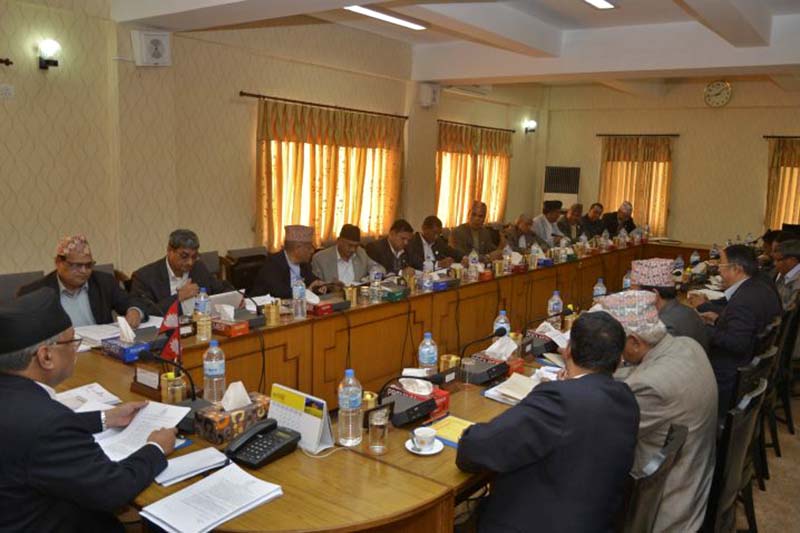Cabinet okays policies related to minerals and intellectual property rights
Kathmandu, February 28
The meeting of the council of ministers today gave approval to the draft bill of National Mineral Policy and National Intellectual Property Policy that was tabled by the Ministry of Industry.
The Cabinet meeting has decided to send the draft bill of these two policies to the draft committee of the Cabinet, according to Industry Minister Nabindra Raj Joshi. Similarly, the meeting has also principally agreed to endorse the draft of the Foreign Investment and Technology Transfer Act (FITTA) as soon as possible.
“Approving the National Mineral Policy and National Intellectual Property Policy is a major step of the government to encourage investment in the country. The decision will convey a positive message to foreign investors participating in the Nepal Investment Summit on March 2-3,” Joshi said. Similarly, he said that principle agreement among council of ministers to introduce FITTA will also send a positive message to investors in the summit.
“Availability of all acts and laws related to investment will boost the morale of potential foreign investors to invest in Nepal,” added Joshi.
The draft bill of the National Mineral Policy envisions to recognise mineral industries as national priority industry and categorise them on the basis of their nature of production. Similarly, the draft bill also envisions offering customs waiver and subsidy for infrastructural development of such mineral industries from fiscal year 2017-18, and special customs duty waiver on import of machinery and equipment which are used for mineral exploration and production in the country.
The draft of the National Mineral Policy also proposes to form a National Mineral Fund worth Rs one billion in the budget for fiscal year 2017-18 to do research on available minerals and their exploration and promotion. The draft bill of the policy has also set an ambitious target of bringing investment — both foreign and domestic — in the domestic mineral industry worth at least Rs 100 billion in the next 10 years.
Similarly, the draft bill of National Intellectual Property Policy aims to address existing barriers in effective implementation of Intellectual Property (IP) laws and protect and promote IP rights of people. The draft of the policy also envisions forming a sole and separate IP office in the country to deal with all issues related to intellectual property, instead of separate institutions.
Likewise, FITTA aims at regulating and facilitating foreign investment in Nepal. The draft of FITTA also envisions different tax waivers and subsidy facilities to foreign investors in Nepal.






